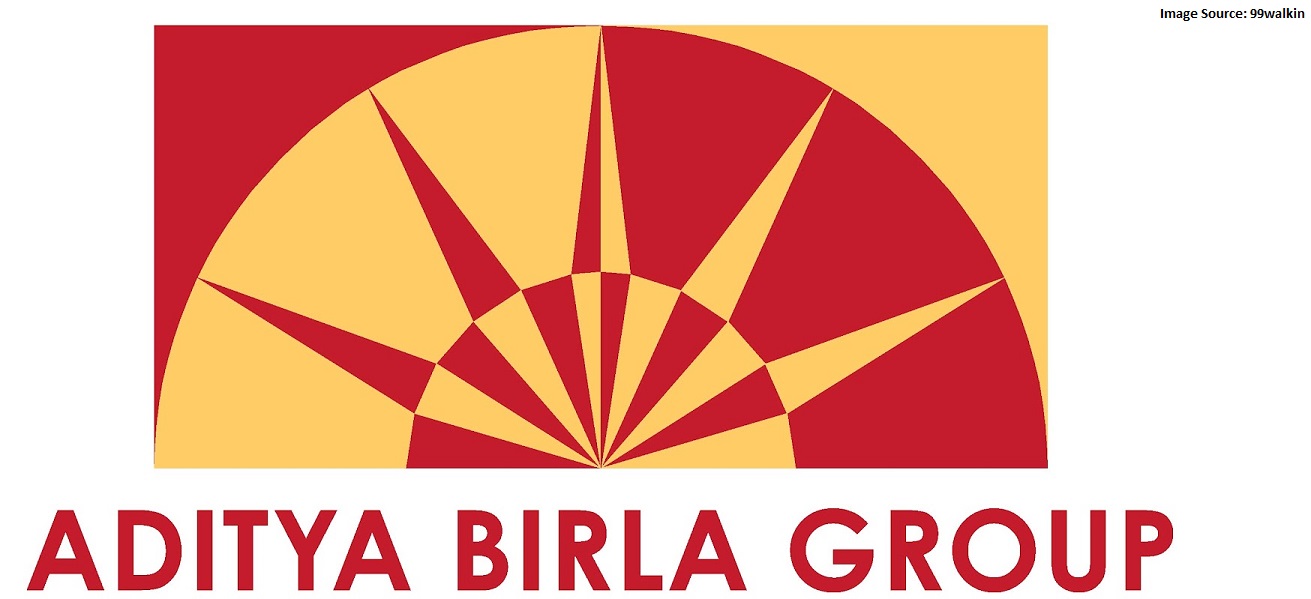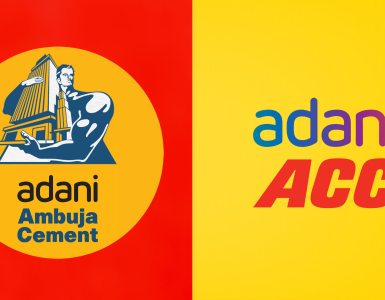In a consolidation move between group companies, Aditya Birla Chemicals Limited (ABCIL) merged with Grasim Industries Limited. The merged consolidated Aditya Birla Group’s chlor-alkali business into Grasim and strengthened its existing portfolio of viscose staple fiber, caustic soda and allied chemicals in stand alone a company. The merger enabled the geographical diversification for Grasim through the addition of ABCIL’s manufacturing facilities spread across the country.
The consolidation will enable the business to capitalize growth opportunities by bringing in operational and financial synergies, backed by Grasim’s strength. Moreover, the move was in line with Aditya Birla Group’s philosophy to unify similar business in one company. The merger took place through a Court approved Scheme of Amalgamation under Section 391 and 394 of the Companies Act, 1956.
The fair trade regulator Competition Commission of India and the high court of Madhya Pradesh have also approved the merger in September. However, approval from Jharkhand high court is still awaited. Grasim Industries reported a consolidated net profit of Rs 489 crore in the September quarter, a rise of 17% year-on-year because of better operational performance. Net revenue of the company rose 6% to Rs 8,393 crore from 7,943 crores a year ago. The firm reported a Rs 211 crore EBITDA for its viscose staple fiber business, up 40% from a year ago, Ebitda for its chemical business rose 17% to Rs 93 crore.
Transaction Structure:
The Swap Ratio was one Equity Share of Rs 10 each of Grasim Industries Limited (GIL) for every 16 equity shares of Rs 10 each of Aditya Birla Chemicals (India) Limited (ABCIL). New number of shares issued by GIL will be –
| Particulars | Rs. |
| Issued capital of ABCIL as on 31.03.2014 | 2,33,86,500 |
| Shares will be issued as per swap ratio (2,33,86,500*16) | 14,61,657 |
Premium to shareholders of ABCIL as on –
| Particulars | 11.02.2015 | 27.02.2015 | |
| A | Market Price of one share of ABCIL | 223.20 | 223.40 |
| B | Therefore value of 16 shares of ABCIL | 3571.20 | 3574.40 |
| C | Value of one share of Grasim | 3835.85 | 3735.05 |
| Premium to shareholders (C-B) | 264.65 | 160.65 |
Share price of the GIL decreased by 2.62% while the share price of ABCIL remained constant with a slight change from the date of announcement of merger (11.02.2015) till 27.02.2015.
Highlights of the Scheme:
- Merger through Court approved scheme of Amalgamation u/s 391 to 394of the Companies Act, 1956 and/ or the Companies Act, 2013
- Date of announcement or Appointed Date: April 1, 2015
- All assets & liabilities of ABCIL will be transferred to Grasim & shall be recorded at book value as on Appointed Date.
About Companies:
Aditya Birla Chemicals (India) Limited:
Aditya Birla Chemicals is a leading manufacturer of bulk and specialty chemicals. The business is creating a strong footprint in the chemicals industry – it is a market leader in the chlor-alkali segment in India.
Product segments
The Chemicals business manufactures a wide range of products using advanced technology and ensuring stringent quality control. Their product portfolio includes Chloralkali, Chlorine derivatives, Phosphates and phosphoric acid. These products are used in a wide range of industries that include metal treatment, textiles, water treatment, pulp and paper, paint and coatings, civil engineering, food and food processing, personal care products, wind energy, composites, electrical industry and detergents.
Grasim Industries Limited:
Grasim Industries Limited, the flagship company of the Aditya Birla Group, ranks amongst India’s largest private sector companies.
Grasim started as a textile manufacturer in 1948. It is also present in Chemicals which is essentially a backward integration of VSF. The Aditya Birla Group is the world’s largest producer of VSF, commanding a 19 percent global market share. Grasim entered into Cement business in 1985 with a capacity of 0.5 million TPA. Over the years, through organic and inorganic expansions, the business has grown multi-fold. Currently, Grasim’s subsidiary Ultra Tech Cement Limited (UltraTech) has a capacity of 61.75 million TPA. Earlier, in July 2004, Grasim acquired a majority stake and management control in Ultra Tech. One of the largest-of-its-kind in the cement sector, this acquisition catapulted Grasim to the top of the league in India. Subsequently, Grasim demerged its cement business into UltraTech in July 2010 and it continues to be its subsidiary as on date. The demerger has created the largest cement company in India, providing a platform that will help in pursuing aggressive growth going forward. FY2014, Grasim’s 77% of the turnover was from cement and only 3% is from a chemical.
Rationale of the scheme:
Leading producer of Caustic Soda in India:
- Post commissioning of Vilayat plant, Grasim is the leading producer of caustic soda in India with installed capacity 453 KTPA
- Combined capacity 804 KTPA (including Jayshree Chemicals – 59ktpa)
Growth opportunity in chemical business:
- Given limited growth opportunities in Viscose Staple Fibre (VSF) business due to current overcapacity and challenging environment globally, ABCIL provides a stable and profitable revenue stream.
- Strong thrust by a government on manufacturing and impending reforms, likely to result in higher growth in manufacturing activities leading to increased chemical consumption.
Consolidation under one entity:
- Consolidate chemical business under one entity in line with Group’s philosophy to unify similar businesses
- Create operational efficiencies, cost competitiveness, and financial synergies to achieve optimum growth in future
- Enable geographical diversification for Grasim in caustic soda through addition of ABCIL’s three manufacturing facilities spread across the country
- Grasim surplus cash can be deployed for investment in the chemical business to improve standalone profitability and achieve growth.
Prior Acquisitions by ABCIL:
Chloro chemical division of Kanoria Chemicals:
- In 2011, acquired Chloro chemical division (CCD) of Kanoria Chemicals for cash consideration of Rs 830 crore.
- The transaction was done on slump sale basis.
- Kanoria Chemicals had the capacity of 1, 15,000 tonnes per annum. So the capacity of ABCIL group enhanced to 2, 20,000 tonnes per annum.
- CCD is highly cost competitive, driven by strengths of the latest manufacturing technology, captive power plants with coal linkage and forward integration into value adding chlorine derivatives
- As the plant was located in Renukoot in Uttar Pradesh it increased growth opportunities in Eastern India and it is next to HINDALCO alumina plant.
- The business has a potential for both growths in revenues and earnings.
Chlor-alkali and phosphoric acid division of Solaris Chemtech Industries Limited:
- In 2013, acquired Chlor-Alkali and Phosphoric Acid Division of Solaris Chemtech Industries Limited for cash consideration of Rs.153 crores on slump sale basis.
- The total capacity of the company increased to 2, 42,725 tonnes per annum.
- Plant located in Karwar, Karnataka enhanced the presence of ABCIL in South India.
- As the caustic soda plant of Solaris Chemtech Industries Limited was not operational since December 31, 2012, the reason behind acquiring this plant was a capacity enhancement.
Chlor Alkali division of Jayshree Chemicals (India) Limited:
- In 2014, acquired Chlor Alkali division of Jayshree Chemicals for cash consideration of Rs 212 crore on slump sale basis.
- Total capacity increased to 3,55, 000 tonnes p.a.
Why acquisition by Grasim?
The management in its press release said, Grasim, being a manufacturer of Chlor Alkali business decided to consolidate chemical business under one entity.
Caustic soda is the input for Viscose Staple Fibre (VSF) which is the main product of GIL. VSF business accounts for about 80% of the company’s standalone revenue.
Options
The group had two options to consolidate its chemical business in one entity. One is the option selected by the group of merging ABCIL in GRASIM. Other one is demerged and make ABCIL as a chemical company.
Why HINDALCO, being the holding company of ABCIL, did not merge ABCIL into itself?
HINDALCO Industries Limited is mainly in the business of Aluminium & Copper. ABCIL is in the Chlor Alkali business. Though HINDALCO accounts for 34% out of the total sales (as on 31.03.2014) of ABCIL, the nature of business of both companies is different. Further, it would have required demerger of GRASIM’s chemical business into HINDALCO to really consolidate chemical business. So this option is not strategically fit and also does not create value for any stakeholders. HINDALCO’s holding in the merged company –
| Total shares issued by ABCILas on 31.03.2014 | 2,33,86,500 |
| Current holding of HINDALCO in ABCILas on 31.03.2014 | 1,20,04,987 |
| Holding in percentage as on 31.03.2014 | 51.33 |
| Number of shares will be issued to HINDALCO, in the course of merger | 7,50,312 |
| Total number of shares of Grasim after merger | 9,33,10,484 |
| Holding in percentage, after merger | 0.80 |
By this Transaction structure, HINDALCO moved out of the business & chlor-alkali business got consolidated under GIL.
Now coming to the second option of demerger of GRASIM’s chemical business into ABCIL, create standalone chemical company, likely shareholding pattern post transaction will be as follows, assuming valuation of chemical business of both the companies is identical:-
As on today, the shareholding pattern –
| Shareholding | GIL | ABCIL | Post -transaction |
| Promoter’s shareholding | 25% | 51% | *38% |
| Others (public shareholding) | 75% | 49% | **62% |
| Total | 100% | 100% | 100% |
*(25*50%) + (51*50%) = 38
** (75*50%) + (49*50%) = 62
Conclusion:
From the chronological events of the shareholding of Aditya Birla Group Company, one can see that earlier both Grasim and Hindalco were equal shareholders. Post right issue at par, Bihar Industrial Development Corporation did not remain part of the promoters and its stake came down to 8% from 26% because it did not subscribe to the right issue at par and Grasim sold its stake. ABCIL issued 1,56,00,000 equity shares on right issue basis in the ratio of 2 equity shares of Rs.10 each at par for every one equity share by making the total issued capital 2,33,86,500 number of shares and Hindalco subscribed all the shares. As a result, it became a subsidiary of Hindalco. Though rationale for merger looks convincing, ideally it should have been demerger of Grasim’s chemical division into ABCIL and make the same as group chemical company supplying and fulfilling requirements of both Grasim and Hindalco. As Grasim is mainly a cement company and secondly a VSF company, by merging the same with Grasim, minority shareholders of both the companies are likely to lose value.




